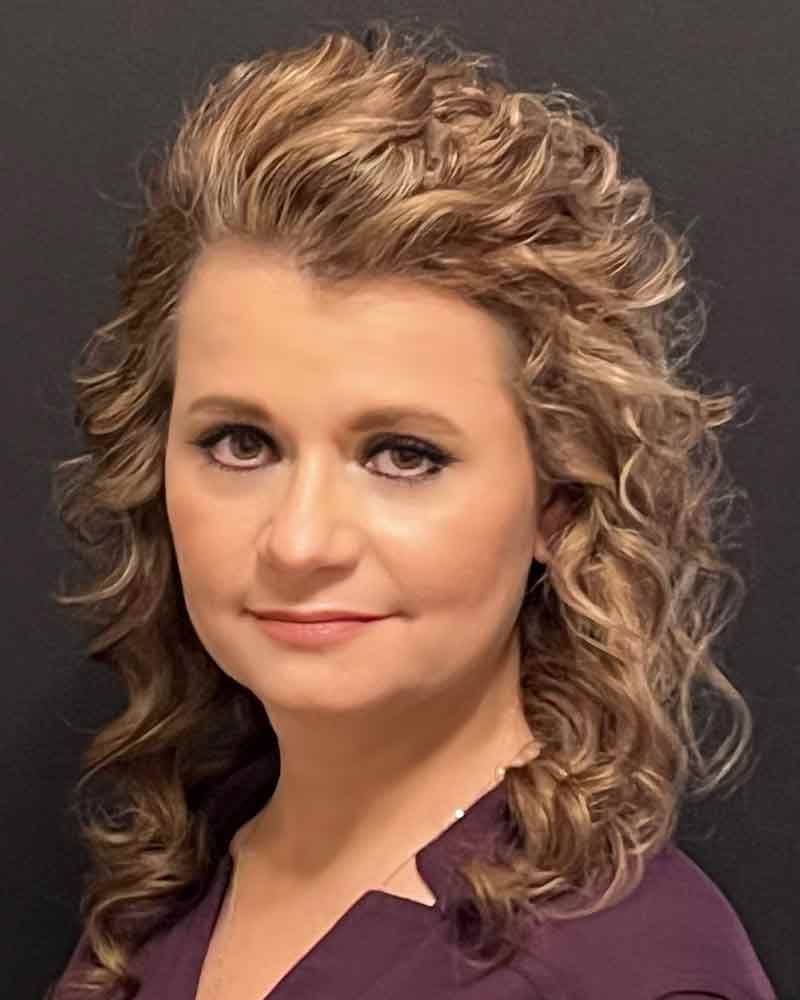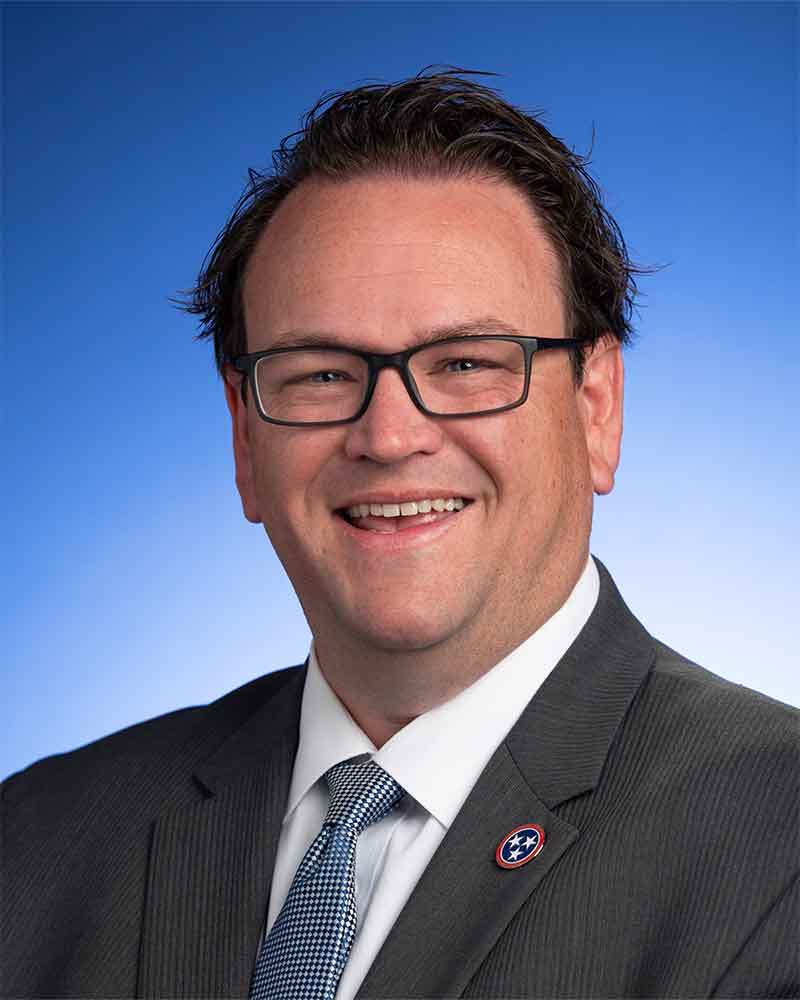Master of Healthcare Administration (MHA)
The Master of Healthcare Administration (MHA) program equips students with leadership competencies and business acumen to enhance patient care, improve clinical outcomes, sustain daily operations and effectively manage change within healthcare organizations.
Want More Info?
Trevecca's MHA program is a leading provider of a transformative Christian-based healthcare management curriculum, preparing students for career entry or advancement in healthcare administration across healthcare delivery systems.
Program Benefits
- Complete your degree online in 20 months with no residency requirements.
- Continue to work and focus on your other priorities while earning your degree, taking one course at a time with all materials delivered to you.
- Utilize a built-in support system and complete your degree alongside others who are working toward similar goals through Trevecca’s cohort model.
- Establish a sustained advantage in a competitive market with a focus on healthcare innovation.
- Learn from faculty who possess the highest degrees in their fields and have relevant and valuable real-world experience.
- Benefit from industry networking and career opportunities and a unique peer-to-peer mentoring program.
What to Expect
Committed to excellence and servant leadership, Trevecca’s MHA program is designed to develop leaders who are experts in the field, ethical, patient-centered and strategic.
As a student, you’ll refine your ability to lead with confidence and integrity while navigating the operational and financial complexities of today’s healthcare environment. Our curriculum emphasizes analytical thinking, collaboration, innovation and financial skills. You’ll also gain proficiency in cutting-edge technology, examine industry trends and apply best practices for organizational effectiveness while improving the overall healthcare experience and elevating patient outcomes.
You will engage in real-world applications through leadership development, a capstone project and field experience. Being immersed in these practical and relevant opportunities throughout your time at Trevecca will build on your expertise, hone your problem solving skills and give you exposure to different settings and areas of focus in the field.

Tuition & Costs
Here’s a look at the approximate tuition rates you could expect for this program at Trevecca, including the cost per credit hour and the total tuition expense for the full degree program. Please note that rates and fees are subject to change.
Here’s a look at the approximate tuition rates you could expect for this program at Trevecca, including the cost per credit hour and the total tuition expense for the full degree program. Please note that rates and fees are subject to change.
Cost/Credit Hour$500 |
Hours40 |
Tuition Cost*$20,000 |
*$150 Student Resource Fee assessed per course. $150 course material cost per course.
Course Descriptions
Get details on all the courses you’ll complete as you work toward this degree at Trevecca.
Read MoreCalled to Healthcare
Equip yourself for a successful healthcare career with Trevecca's innovative and comprehensive degree programs. From nursing to healthcare administration, we provide the skills and expertise you need. Join us in shaping the future of healthcare!
Career Opportunities: Master of Healthcare Administration
With Trevecca's MHA degree, you’ll be ready to advance your career and tap into higher earning potential. When combined with your work experience, your degree will position you to be competitive in the following roles:
Degree and 1-4 Years Work Experience:
- Supervisory positions
- Coordinator/specialist roles in specific areas
- Office manager
- Business manager
- Associate administrator
- Administrative coordinator
Degree and 5+ Years Work Experience:
- Regional vice president (corporate level)
- Hospital administrator
- Nursing home administrator (must possess state licensure)
- Executive director
- Associate C-Suite level
- Senior VP level(s)
- Chief executive officer
- Chief operating officer
- Health information director
- Director of operations
- Program manager
- Admissions
- Mode
- Additional Costs
- Mission, Vision & Values
- Curriculum Design and Management Competencies
- Curriculum Cornerstones
- Advisory Board
- Student Data & Program Outcomes
- A Message from Dr. Norris
- Candidate Status
- Why Choose Trevecca?
Our three-step enrollment process is fast, easy and free! Simply complete the application, submit your transcripts and we’ll take care of the rest.
Getting started
- Complete the online application (it's free!). No GRE or GMAT scores are required.
Need help applying? Read the step-by-step instructions here! - Fill out FAFSA to be considered for financial aid.
- Request official transcripts from your undergraduate institution.
Admissions requirements
- Have earned a bachelor's degree from an institution accredited by a CHEA-recognized regional accrediting agency or a regionally accredited institution. Students who do not meet these degree requirements may be conditionally accepted in accordance with the Conditional Admission Policy
- 2.75 cumulative GPA for all prior coursework
- Completion of a college-level math course with a grade of C or higher
- Completion of a college-level English course with a grade of C or higher
- Provide photocopy of government-issued identification (e.g., driver's license, state ID, military ID or passport). This requirement ensures that Trevecca complies with the U.S. Department of Education expectations for student verification. (This is only required for students enrolled in an online program.)
If you feel you may not meet these requirements, please fill out the form below to be connected with an enrollment counselor. Prospective students seeking conditional admission must complete a satisfactory assessment interview with the MHA program director or faculty designee.
We understand life is busy and you may not have time to attend class on campus. You can earn your degree with us while focusing on one class at a time, any time—24/7. Through Trevecca Online, classes are taught digitally through our learning management system, Canvas. Additionally, books and materials are delivered to your front door. And when we say the degree is entirely online, we mean it. Our program is structured so that you never have to step foot on campus—not even once!
Our online students also benefit from a cohort model, where students begin and complete their degree alongside a group of other online classmates working toward similar goals.
The following are required costs to complete the courses related to this program:
- HCL5140 - Principles of Leadership and Strategy
Pre-Assessment Exam: $45 - HCL6115 - Value-Based Financial Management & Budgeting
Mid-Point Assessment Exam: $45 - HCL6205 - Capstone Project: Addressing Real-Time Health Care Challenges and HCL6240 - Health Industry Field Experience
Post-Assessment Exam: $45
Mission Statement
Trevecca Nazarene University's MHA program, grounded in Christian values, prepares early to mid-career professionals for leadership roles in diverse healthcare settings through collaborative, student-centered learning. The program fosters analytical thinking, strategic orientation, talent development, and operational excellence to meet the evolving demands of the healthcare industry.
Vision Statement
Trevecca's MHA program will be a leading provider of a transformative Christian-based healthcare management curriculum, preparing students for career entry or advancement in healthcare administration across healthcare delivery systems.
Program Values
As aligned with its mission and vision, Trevecca's MHA Program core values are:
COMMUNITY: The MHA program embraces diverse communities, fostering inclusion, respect and equity, ensuring people feel valued and heard. We prioritize fair treatment regardless of age, citizenship, disability, economic status, ethnicity, gender, race, religion or sexual orientation, creating an environment of civility for our students' personal and professional growth.
INNOVATION: The MHA program understands the importance of innovation by fostering creativity, originality and initiative within healthcare management education. Graduates from the program are seen as forward-thinkers who will contribute to the continuing transformation of the healthcare system by addressing challenges from multiple perspectives to solve problems and advance knowledge.
INTEGRITY: The MHA program believes that having strong ethical and moral principles signifies the quality of integrity of the student's work environment. Regardless of who may be watching, individuals with integrity act with honesty, honor and truthfulness.
LEADERSHIP: The MHA program recognizes that future healthcare leaders must demonstrate strong leadership competencies to propel positive change, promote innovation and address complex challenges in the healthcare industry.
SERVICE: Service signifies the commitment to serving communities and addressing their healthcare needs. The MHA program emphasizes community involvement while contributing to the community's well-being by understanding their needs and how to hold themselves accountable for their words and actions.
In alignment with the program and course learning outcomes, the following 12 competencies are addressed throughout Trevecca's MHA program curriculum:
Accountability - The ability to hold people accountable to standards of performance or ensure compliance by effectively and appropriately using the power of one's position or personality, with the long-term good of the organization in mind.
Achievement Orientation - A concern for surpassing standards of excellence. Standards may involve past performance (striving for improvement), objective measurements (results orientation), outperforming others (competitiveness), challenging goals or redefining the nature of the standards themselves (innovation).
Analytical Thinking - Developing a deeper understanding of a situation, issue or problem systematically; making systematic comparisons of different features or aspects; setting priorities on a rotational basis; and identifying time sequences, casual relationships or if-then relationships.
Communication Skills II - Speaking & Facilitating- The ability to use spoken communications in formal and informal situations to convey meaning, build shared understanding and productively move agendas forward.
Collaboration - The ability to work cooperatively and inclusively with other individuals and/or teams they do not formally lead; working together as opposed to working separately or competitively.
Financial Skills – The ability to understand and explain financial and accounting information, prepare budgets, and make sound long-term investment decisions.
*Leadership - The ability to recognize and capitalize on personal and team strengths to achieve organizational goals.
Organizational Awareness - The ability to understand and learn the formal and informal decision-making structures and power relationships in an organization or industry (e.g., stakeholders, suppliers). This includes the ability to identify who the real decision-makers are and the individuals who can influence them, and to predict how new events will affect individuals and groups within the organization.
Performance Measurement – The ability to understand and use statistical and financial metrics and methods to set goals and measure clinical as well as organizational performance. The commitment to and consistent deployment of evidence-based techniques.
Strategic Orientation - The ability to consider the business, demographic, ethno-cultural, political and regulatory implications of decisions and develop strategies that continually improve the long-term success and viability of the organization.
Talent Development – The ability to build the breadth and depth of the organization's human capability and professionalism, including supporting top-performing people and taking a personal interest in coaching and mentoring high-potential leaders.
*Career and Self-Development - To proactively develop oneself and one's career through continual personal and professional learning, awareness of one's strengths and weaknesses, navigation of career opportunities and networking to build relationships within and without one's organization.
NOTE: * represents competencies supported by the University's Quality Enhancement Plan (QEP), which are also used in the program's annual assessment report.Trevecca's MHA program curriculum is centered around three broad components:
- Professionalism: Leadership & Management Development
Students are immersed in practical, synchronous and asynchronous activities throughout the lifecycle of their studies. Students complete industry and self-assessments to increase self-awareness about their leadership and management competencies and the demands of the healthcare workforce. - Business, Healthcare and Financial Acumen Acquisition
Students not only receive foundational business knowledge, but more specifically tailored knowledge and skills in the field of healthcare administration. As described in greater detail later, content includes financial management, operations management, information technology, healthcare economics and statistics and much more. - Knowledge and Skills Application: The Capstone Project/The Field Experience
The industry capstone project requires student collaboration with a healthcare professional, research, application and synthesis of leadership theories, competencies and other coursework learned throughout the program. Students will identify a problem and work alongside a healthcare leader to find a resolution to the problem. The project's results are revealed in a final presentation.
The administrative field experience promotes students' immersion to obtain real-world experience and gain exposure to multiple disciplines within the ecosystem of healthcare administration. Completing the field experience will assist students with identifying areas of interest specific to their chosen career pathway or advancing within the workforce in a managerial or leadership position that aligns with their level of education and career aspirations.
The advisory board for Trevecca's MHA program includes the following members.
- Andrew McDonald
Shareholder, President/CEO, LBMC
Physician Business Solutions, LLC
Brentwood, TN - Stephen Bearden
Chief Operating Officer (COO)
Ascension Saint Thomas Midtown
Nashville, TN - Katina Beard
Chief Executive Officer (CEO)
Matthew Walker Comprehensive Health Center
Nashville, Smyrna, and Clarksville, TN - Dwayne Gunter
Chief Executive Officer (CEO)
Ovation Health
Brentwood, TN - Teresa Sparks
Independent Board Member, Audit Committee Chair, Experienced Healthcare Executive
Nashville, TN - Amy Wheeler
Chief Financial Officer (CFO)
Baptist Health, Alabama Region
Birmingham, AL - Kyle Davis
Chief Financial Officer (COO)
Hospital-Based Physician Services
Healthcare Corporations of America (HCA)
Nashville, TN - Howard Wall
Partner
Epstein Becker & Green, P.C.
Nashville, TN - Chad Uram
Vice President, Integrated Revenue Cycle Operations
Parallon/HCA Healthcare
Nashville, TN - Rhonda Hatfield
Chief Nursing Officer (CNO), Management Consultant
Common Spirit/Trinity Health
Steubenville, OH - Dr. Kathleen Mandato
Director, Epic Training
Vanderbilt University Medical Center
Nashville, TN - Jerry Vaughan
Chief Executive Officer (CEO)
Concentric Senior Care, LLC
Nashville, TN - Dona Hanna
Safety Specialist and MHA Program Alumna
Sarah Cannon Research Institute
Nashville, TN - Alissa Bryan
Director of Nutrition Services and MHA Program Alumna
Murray - Calloway County Hospital
Murray, KY
Student Data & Program Outcomes
| Cohort by Graduation Year | 2025 | 2024 | 2023 |
| Number of Program Graduates | 19 | 31 | 26 |
| Median GPA of Admitted Cohorts | 3.035 | 2.907 | 3.038 |
| Top Workplace Setting of Enrolled Students | Hospital/Health Systems | Hospital/Health Systems | Hospital/Health Systems |
| # of Students Residing in Tennessee | 100% | 92% | 96% |
| % of Enrolled Students in Admin/Mgmt. | 62% | 83% | 53% |
| % of Minority Students | 48% | 46% | 46% |
| % of Students Satisfied or Highly Satisfied | 100% | 80% | 80% |
| Job Placement Rate (post-graduation) | 100% | 84% | 73% |

Candidate status is an indication that a program in healthcare management has voluntarily committed to participate in a plan of self-improvement and is actively progressing toward the status of accreditation. Candidate status is not accredited status and does not guarantee eventual accredited status.
Why Choose Trevecca?
 Founded in 1901 and a leader in online education for more than two decades, Trevecca helps students discover and pursue an individual calling by providing innovative instruction; cultivating a supportive, Christ-centered community; and establishing relationships that open doors.
Founded in 1901 and a leader in online education for more than two decades, Trevecca helps students discover and pursue an individual calling by providing innovative instruction; cultivating a supportive, Christ-centered community; and establishing relationships that open doors.
 Recognized nationally and locally for academic quality, Trevecca has earned a reputation for providing the world with servant leaders, problem solvers and difference makers. Trevecca’s holistic approach to education encompasses intellectual, social, emotional, physical and spiritual growth.
Recognized nationally and locally for academic quality, Trevecca has earned a reputation for providing the world with servant leaders, problem solvers and difference makers. Trevecca’s holistic approach to education encompasses intellectual, social, emotional, physical and spiritual growth.
Next Steps
App Process & Timeline
Mission-Driven Faculty
-

Phil Rickard, DBA
Professor of Accounting and Director of the DBA Program
Read Full BioDr. Phil Rickard is a Certified Public Accountant and has worked in various areas of financial and managerial accounting related to energy industries. He has also served in various student ministry roles in West Virginia, Ohio, and Tennessee. Dr. ...
-

Tammy Curtis, Ph.D.
Adjunct Faculty
-

Kathleen Mandato, Ph.D.
Adjunct Faculty
-

Edmund McFadden, DBA
Associate Professor, Healthcare Administration
Read Full BioDr. McFadden has over 30 years of healthcare consulting, operations, and information technology experience in multi-site, high-growth healthcare companies. He teaches undergraduate, master's, and doctorate-level courses. He has successfully ...
-

Brandee Norris, Ph.D.
Professor and Director, Healthcare Administration Programs Coordinator for MBA and DBA Healthcare Tracks
Read Full BioBrandee’s specialization is healthcare administration and she is deeply passionate about mentoring future healthcare leaders. She embraces faith-based learning and promotes the importance of authentic servant leadership. As a former healthcare ...
-

Roy Philip, Ph.D.
Associate Professor, Business
Read Full BioRoy's expertise is in marketing, international business and production and operations management, with an emphasis on strategy.
He has over 25 years of teaching experience (both at the undergraduate and graduate level). He has taught in ...
-

Phil Rickard, DBA
Professor of Accounting and Director of the DBA Program
Read Full BioDr. Phil Rickard is a Certified Public Accountant and has worked in various areas of financial and managerial accounting related to energy industries. He has also served in various student ministry roles in West Virginia, Ohio, and Tennessee. Dr. ...
-

Joshua Smith, Ph.D.
Associate Professor, Business
Read Full BioDr. Smith teaches economics in undergraduate and master's courses at TNU and advises undergraduate international business students. He earned his Ph.D. in economics and MBA from MTSU and his undergraduate degree from Trevecca. His research ...
-

Todd Staley, Esq., JD
Adjunct and Healthcare Attorney
-

Ty Tabernik, Ph.D.
Adjunct Professor
I have felt supported during the good times and bad at Trevecca. I truly believe both the faculty and my classmates want to see me succeed and I want the same for them. It is a family environment of people who push each other to be their best.
Course Descriptions
Get details on all the courses you’ll complete as you work toward this degree at Trevecca.*
Cohort Schedule
View a sample schedule of the courses you will be taking when you enroll.
Organizational Behavior and Change in Healthcare
HCL 5110
This course evaluates dynamics of healthcare organizations and suggests ways healthcare leaders might influence organizational behavior among personnel to attain desirable outcomes and meet organizational goals.
Principles of Healthcare Leadership and Strategy
HCL 5140
Value-Based Financial Management and Budgeting
HCL 6115
Health Reform and Alternative Healthcare Delivery Solutions
HCL 6130
Health Information Informatics and Security
HCL 6160
Human Resource Management in Healthcare
HCL 6170
Health Economics
HCL 6180
Healthcare Operations and Key Performance Indicators
HCL 6190
IT Strategy in Business
ITI 5700
Marketing Management
MKT 5093
Focuses on the importance of modern organizations being market driven and globally competitive. It examines the role of the marketing function and fundamentals, such as market segmentation, targeting, product life cycle, new product planning, distribution strategies, pricing, promotion, forecasting, market analysis, and competitor analysis. Students conduct marketing audits of actual organizations.
Statistics for Healthcare Management
HCL 6250
Healthcare Foundations for Success
HCL 6000
This two-week course is designed to help students acclimate to Trevecca's MHA program by completing various leadership and personality type assessments and the program's pre-assessment exam. Results from these assessments will be collected, tracked and applied in subsequent courses. Additionally, students will provide an updated resume using the SkillsFirst platform. Through one-on-one sessions, each student will review their progress as they matriculate through the program.
In week two, students will explore the foundations of leadership and assess their leadership traits by completing LinkedIn Learning modules. Completing this onboarding course will help students learn about their leadership strengths and weaknesses. By the program's end, students should witness their growth and mastery of various leadership and management competencies to help enhance professional development and prepare for career advancement in the healthcare industry.
Artificial Intelligence (AI) in Healthcare
HCL 6260
CAPSTONE COURSE (CHOOSE ONE)
Capstone Project: Health Challenges
HCL 6205
Health Care Industry Field Experience
HCL 6240
The industry field experience offers students an opportunity to shadow healthcare professionals in various roles and settings. Students will obtain real-world experience and gain exposure to multiple disciplines within the landscape of healthcare administration. Successful completion of the field experience will assist students with identifying areas of interest specific to their chosen career pathway. The industry field experience is a required, 120- hours, 12-week course for students enrolled in the M.S. Healthcare Administration Program who possess less than three (3) years of healthcare experience.
*HCL 6230 Health Industry Field Experience Continuation is available if students need more time to complete the 12-week, 120 hours field experience.
*For a complete list of courses and other relevant information, view the program's course catalog.
Related Articles
-

Why Servant Leadership is Crucial in Healthcare Administration
After getting her business degree from Trevecca, Anna Myers got her dream job with the Nashville Predators, working in community ...
Read More -

Hamilton Thrives in Exclusive Healthcare Internship
Tammy Hamilton took part in an exclusive health care administration internship while earning her master’s at Trevecca in ...
Read More -

Master’s in Healthcare Administration Helps Gonzalez Expand Perspective, Advance Career and Discover Ultimate Calling
Bea Gonzalez found her desired career during her Master of Science in health care administration program at Trevecca in Nashville.
Read More
Related Programs
-
Master of Business Administration (MBA)
Trevecca’s Master of Business Administration (MBA) degree equips students for an impactful professional career in a variety of industries. This versatile program allows students to choose from a 15-month accelerated option or a 22-month traditional option, and students can tailor the degree by following any of these specialty tracks: data analytics, entrepreneurship and innovation, healthcare administration, human resources, management and leadership, nonprofit leadership and management, or project management.
Learn More -
Human Performance and Fitness (M.S.)
Trevecca’s human performance and fitness (M.S.) degree equips students for hands-on careers in health, fitness and exercise science. This fully online master’s degree program offers a twist on a traditional master’s in exercise science with a focus on practical application, human performance and fitness and an MBA-level entrepreneurship and innovation track. Graduates will be prepared to manage a practice as well as earn their certification through organizations like the National Strength and Conditioning Association (NSCA).
Learn More





